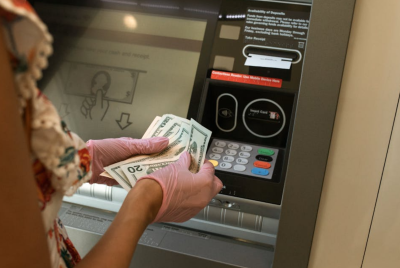Forget Bitcoin: Pokémon Cards Soar 3,821% Since 2004 — Outperforming Meta And The S&P 500
From childhood hobby to financial powerhouse—Pokémon cards are crushing traditional investments in long-term returns

Pokémon trading cards have transformed from playground swaps into one of the world's hottest alternative investments.
Data from analytics firm Card Ladder shows the market has jumped 3,821% since 2004, leaving the S&P 500's 483% and even Meta Platforms' 1,844% rise trailing behind.
From Hobby To High-Yield Asset
Launched by Nintendo in 1996, Pokémon cards now trade across platforms like eBay, TCGplayer and international expos. The boom accelerated during the pandemic, as stimulus spending and lockdowns pushed collectors to alternative assets.
For some, the rewards have been life-changing. Lucas Shaw, a 27-year-old account manager from Ohio, said profits from his cards paid for his wedding ring and celebration.
Similarly, Justin Wilson, a 32-year-old advertising manager in Oklahoma City, estimates his collection of 500 cards and 100 sealed items to be worth around $100,000.
He considers Pokémon cards part of his investment portfolio, alongside his Roth IRA and brokerage accounts.
The appeal lies not just in financial gain but in emotional resonance. 'You've gotta catch 'em all,' Wilson quipped, echoing the franchise's iconic slogan. For many, the cards represent a blend of nostalgia and speculative opportunity.
What Drives The Value Of Rare Pokémon Cards

Unlike shares, Pokémon cards yield no dividends—their worth hinges on rarity, condition and cultural weight. Cards graded by Professional Sports Authenticator (PSA) with a flawless PSA 10 rating can command astronomical prices.
The most dramatic example of this came in 2022 when influencer Logan Paul purchased a near-perfect 'Pikachu Illustrator' card for $5.3 million, setting a Guinness World Record for the most expensive Pokémon card sold privately. This event further ignited interest in the market and underscored the speculative potential of high-grade cards.
Risks Of The Pokémon Card Market
Financial advisers warn against treating collectibles as core portfolio assets. Prices are highly volatile, influenced by hype, media coverage and collector sentiment. Counterfeit cards remain a threat, with scams surfacing regularly.

Still, the resilience of the Pokémon brand, which spans video games, films, and merchandise, adds a layer of stability. Unlike sports cards, which can be affected by real-world controversies, Pokémon characters remain untouched by scandal, making them a safer stake in the eyes of some collectors.
The Future of Collectible Investing
The meteoric rise of Pokémon cards reflects a broader shift in how people perceive value. As digital assets like Bitcoin face regulatory scrutiny and tech stocks endure market corrections, tangible collectibles offer a nostalgic and potentially profitable refuge.
Whether values can sustain remains uncertain. Yet the 3,821% surge over two decades has cemented Pokémon trading cards as one of the most striking examples of how childhood pastimes can morph into multi-million-dollar investments.
© Copyright IBTimes 2025. All rights reserved.





















